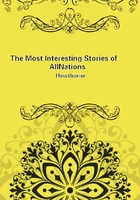
第45章 II(4)
But this fatigue was as nothing compared to the emotion occasionally produced by an error in the time that was to elapse between my two performances. I remember that, one night, having to wind up the performances at the Vaudeville, the stage manager miscalculated the time the pieces would take in performing, and found himself much in advance. He sent off an express to warn me that the curtain had fallen, and I was anxiously expected. Can my readers comprehend my wretchedness? My experiments, of which I could omit none, would occupy another quarter of an hour; but instead of indulging in useless recriminations, I resigned myself and continued my performance, though I was a prey to frightful anxiety. While speaking, I fancied I could hear that cadenced yell of the public to which the famous song, "Des lampions, des lampions," was set. Thus, either through preoccupation or a desire to end sooner, I found when my performance was over I had gained five minutes out of the quarter of an hour. Assuredly, it might he called the quarter of an hour's grace.
To jump into a carriage and drive to the Place de la Bourse was the affair of an instant; still, twenty minutes had elapsed since the curtain fell, and that was an enormous time. My son Emile and I proceeded up the actors' stairs at full speed, but on the first step we had heard the cries, whistling, and stamping of the impatient audience. What a prospect! I knew that frequently, either right or wrong, the public treated an artiste, no matter whom, very harshly, to remind him of punctuality. That sovereign always appears to have on its lips the words of another monarch: "I was obliged to wait." However, we hurried up the steps leading to the stage.
The stage manager, who had been watching, on hearing our hurried steps, cried from the landing:
"Is that you, M. Houdin?" "Yes, sir--yes.""Raise the curtain!" the same voice shouted. "Wait, wait, it is imp--"My breath would not allow me to finish my objection; I fell on a chair, unable to move.
"Come, M. Houdin," the manager said, "DO go on the stage, the curtain is up, and the public are so impatient."The door at the back of the stage was open, but I could not pass through it; fatigue and emotion nailed me to the spot. Still, an idea occurred to me, which saved me from the popular wrath.
"Go on to the stage, my boy," I said to my son, "and prepare all that is wanting for the second-sight trick."The public allowed themselves to be disarmed by this youth, whose face inspired a sympathizing interest; and my son, after gravely bowing to the audience, quietly made his slight preparations, that is to say, he carried an ottoman to the front of the stage, and placed on a neighboring table a slate, some chalk, a pack of cards, and a bandage.
This slight delay enabled me to recover my breath and calm my nerves, and I advanced in my turn with an attempt to assume the stereotyped smile, in which I signally failed, as I was so agitated. The audience at first remained silent, then their faces gradually unwrinkled, and soon, one or two claps having been ventured, they were carried away and peace was made. I was well rewarded, however, for this terrible ordeal, as my "second-sight" never gained a more brilliant triumph.
An incident greatly enlivened the termination of my performance.
A spectator, who had evidently come on purpose to embarrass us, had tried in vain for some minutes to baffle my son's clairvoyance, when, turning to me, he said, laying marked stress on his words:
"As your son is a soothsayer, of course he can guess the number of my stall?"The importunate spectator doubtless hoped to force us into a confession of our impotence, for he covered his number, and the adjacent seats being occupied, it was apparently impossible to read the numbers. But I was on my guard against all surprises, and my reply was ready. Still, in order to profit as much as possible by the situation, I feigned to draw back.
"You know, sir," I said, feigning an embarrassed air, "that my son is neither sorcerer nor diviner; he reads through my eyes, and hence I have given this experiment the name of second sight.As I cannot see thenumber of your stall, and the seats close to you are occupied, my son cannot tell it you." "Ah! I was certain of it," my persecutor said, in triumph, and turning to his neighbors: "I told you I would pin him.""Oh, sir! you are not generous in your victory," I said, in my turn, in a tone of mockery. "Take care; if you pique my son's vanity too sharply, he may solve your problem, though it is so difficult.""I defy him," said the spectator, leaning firmly against the back of his seat, to hide the number better--"yes, yes--I defy him!""You believe it to be difficult, then?" "I will grant more: it is impossible.""Well, then, sir, that is a stronger reason for us to try it. You will not be angry if we triumph in our turn?" I added, with a petulant smile.
"Come, sir; we understand evasions of that sort. I repeat it--I challenge you both."The public found great amusement in this debate, and patiently awaited its issue.
"Emile," I said to my son, "prove to this gentleman that nothing can escape your second sight.""It is number sixty-nine," the boy answered, immediately.